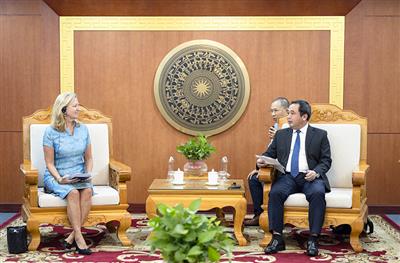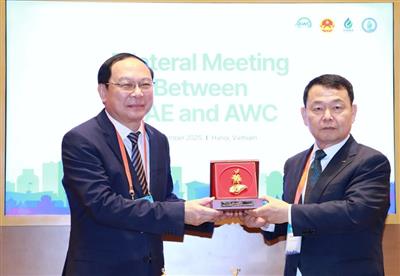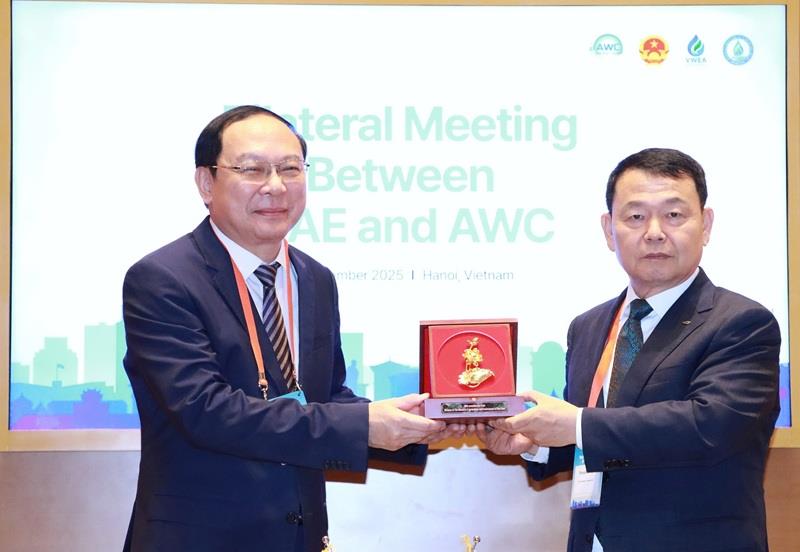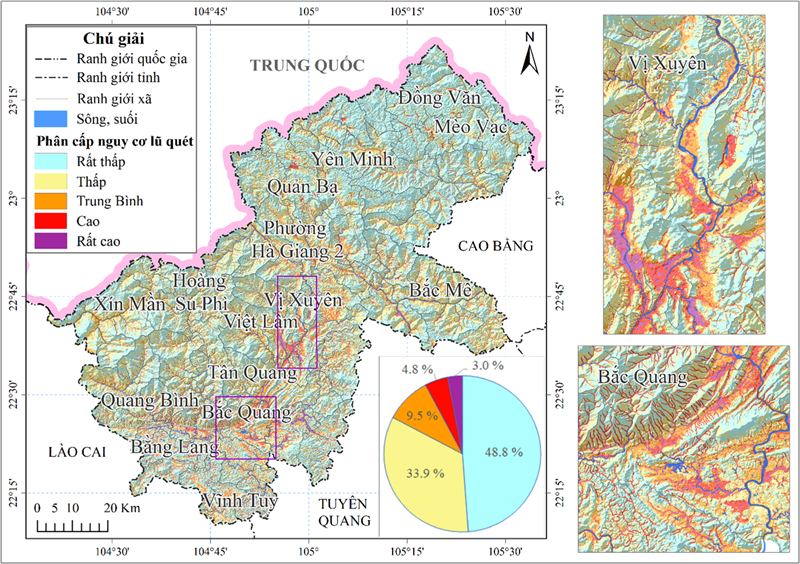
Scientific-technological research significantly contributes to the advancement of resource and environmental management
24/05/2024TN&MTScientific-technological research is intrinsically linked to the evolution and refinement of strategies for sustainable development in these domains. Scientific inquiry serves as a crucial step in the acquisition, analysis, and processing of information, thereby furnishing invaluable insights for governmental entities. This aids in the formulation of policies, establishment of guidelines, and delineation of strategic frameworks tailored to address practical exigencies at various developmental junctures of the nation.

Domains of scientific inquiry and their efficacy in resource and environmental management
Resource and environmental management encompass a multifaceted array of disciplines, including environmental studies, land management, water resources management, geology and mineralogy, climatology, meteorology and hydrology, cartography, remote sensing, marine sciences, biodiversity studies, environmental jurisprudence, waste management technologies, and environmental impact assessments. These realms form the bedrock of sustainable development, catering to the manifold exigencies of both livelihoods and industrial pursuits.
In the year 2022 alone, the Ministry of Natural Resources and Environment (MONRE) spearheaded 101 extant ministerial-level initiatives, comprising 76 nascent ministerial-level projects and 15 institutional-level undertakings in scientific and technological research. The fruits of these endeavors have underpinned the development of myriad legislative instruments governing resource allocation and environmental stewardship.
Technological breakthroughs have heralded the dissemination and implementation of novel methodologies across diverse sectors, including land administration, cartography, remote sensing, aquatic resource management, environmental conservation, climatological studies, geological surveys, maritime exploration, as well as the integration of scientific advancements into the digital realm and e-governance initiatives.
The imperative of scientific-technological inquiry in resource and environmental management
Within the purview of land management, scientific inquiry has furnished both theoretical underpinnings and practical frameworks for the enhancement of extant policies and statutes governing land usage. This has facilitated the revision and augmentation of extant Land Laws, enshrining provisions concerning land classification, management modalities, multifarious land utilization paradigms, and methodologies for land valuation.
In the realm of water resources management, research initiatives have engendered theoretical frameworks and practical modalities pertinent to the exploration, exploitation, and conservation of aquatic resources. This has encompassed the formulation of legal statutes fostering judicious resource utilization, recycling imperatives, and international best practices conducive to the formulation of astute resource management strategies.
In the domain of geological mineralogy, recent years have witnessed a concerted focus on the development of evaluative methodologies for precious minerals. These efforts are geared towards strategic planning vis-à-vis rare earth mineral resources in the Northwest region and beyond, charting a trajectory towards 2050 encompassing geological stratagems, mineral resource assessments, and mining industry paradigms until 2030, with a prognostication towards 2045.
In the arenas of climatology and hydrology, a panoply of research initiatives have been underway to delineate research trajectories geared towards climate change adaptation. This has encompassed policy advocacy, international experiential exchanges, and the formulation of prognostic climatological models with a three-month temporal horizon.
In the realm of cartography, significant strides have been made in equipment refinement and design. This has encompassed the development of Global Navigation Satellite System (GNSS) devices and unmanned aquatic vessels for large-scale aquatic topography mapping.
Especially in the environmental field, the effectiveness of scientific and technological research has contributed to assessing the environmental impacts of investment projects on natural heritage; enhancing automation to improve the technology for receiving, classifying household solid waste in closed systems, and processing waste towards resource recovery without environmental pollution; proposing solutions for managing and treating discarded solar energy batteries; researching international experiences in determining safe environmental distances between production, business, and service facilities and residential areas for application in Vietnam; and conducting research to develop regulations on environmental protection to strengthen compliance with the provisions of the Environmental Protection Law regarding on-site wastewater treatment equipment, waste collection equipment, temporary storage of waste from household-scale production, business, and individual facilities.
Augmenting the role of scientific inquiry in resource and environmental management towards sustainable development
In the coming epoch, the onus of resource and environmental protection will assume unprecedented salience, especially in the crucible of burgeoning global climatic vicissitudes. Consequently, scientific research and technological innovation must harness extant accomplishments, surmount impediments, and incrementally enhance the quality and efficacy of their endeavors to serve the imperatives of resource and environmental management, thereby redounding to the socioeconomic development milieu.
It is necessary to establish an electronic information portal for scientific research and technology, concurrently deploying this portal to all local units to effectively meet the requirements of providing and exchanging information, documents, and fostering scientific research forums in the fields of resources and environment. The adoption of software solutions for automated scientific dossier compilation will streamline project registration protocols, affording the ministry's scientific council the latitude to cherry-pick projects germane to exigencies, rich in practical applicability, and teeming with promise for industry and everyday life.
Fostering an ecosystem conducive to the active involvement of nascent scientists in scientific research endeavors is imperative. This entails recognizing and lauding their achievements in contests and scholarly symposia at every echelon. Such measures are indispensable in transmuting science, technology, and innovation into veritable catalysts for sustainable development. The promulgation of scientific inquiry will galvanize the metamorphosis of high-caliber human capital requisite for the exigencies of resource and environmental management in the panorama of sustainable development.
Dr. Nguyen Tien Dung - The Vietnam People's Police Academy
(Published in Specialized Issue of Science and Technology Journal 2/2023)
















